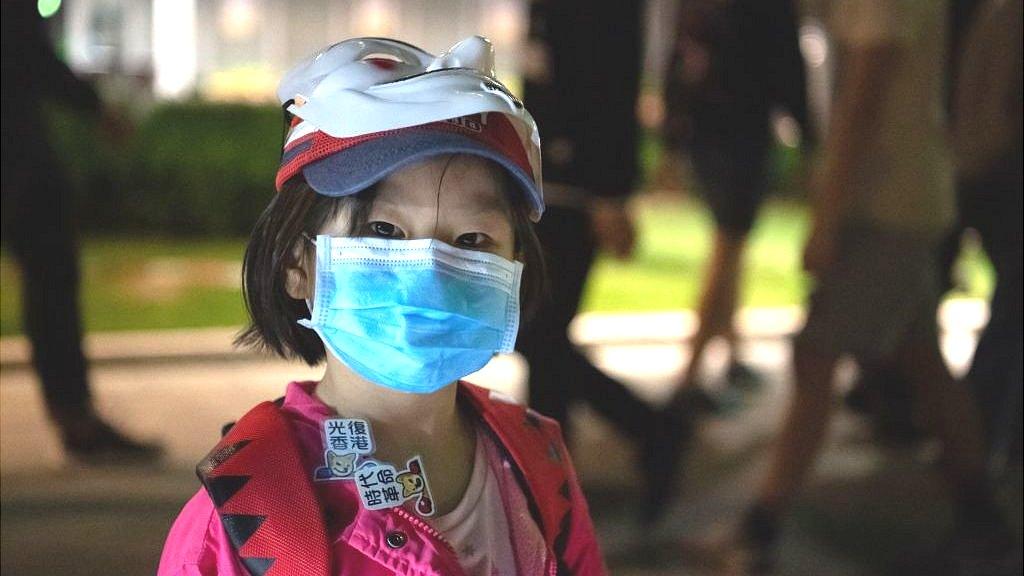Hong Kong protests: Students in Hong Kong are boycotting classes
- Published
- comments
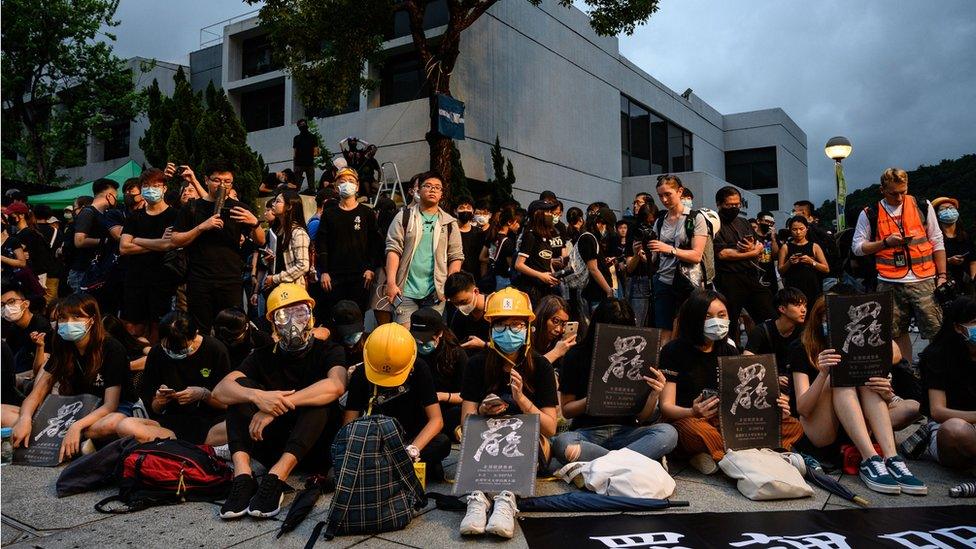
Students took part in a boycott at the Chinese University of Hong Kong
Today marks the first day back to school for students in Hong Kong. However, classes won't be resuming as usual for many.
School and university students in Hong Kong are taking part in anti-government protests from today.
Some believed the protests, which have been going on for three months, would die down once the new school term restarted.

Both university and school students in Hong Kong have been taking part in anti-government protests
However, thousands of students are set to take part in class boycotts which are expected to last for two weeks. Some demonstrations are already underway.
What other protests have been taking place?
This weekend has seen further clashes between protestors and the police in Hong Kong.
Passengers at Hong Kong's Chek Lap Kok airport faced disruptions yesterday after roads were blocked by pro-democracy protestors.
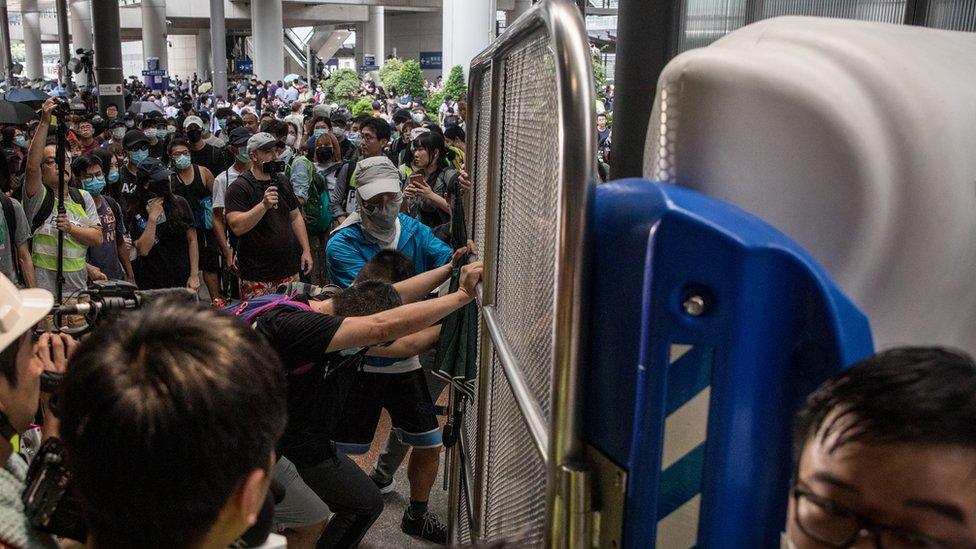
Pro-democracy demonstrators attempted to enter Hong Kong's airport over the weekend
Those demonstrating tried to enter the airport terminal building, but riot police intervened.
Trains to the airport were stopped and many passengers were forced to walk to the terminal. Some also faced delays to their flights.
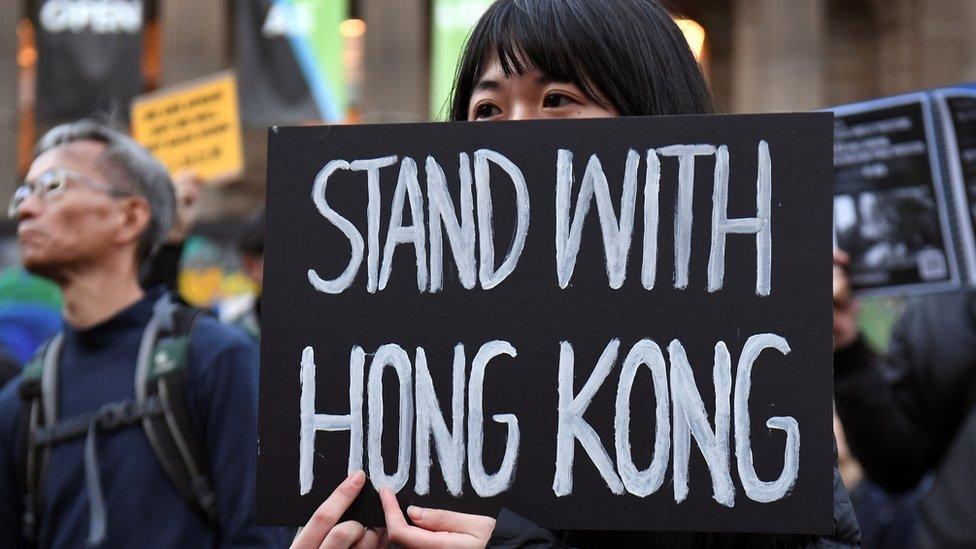
Hong Kong police also clashed with protesters on a train at the city's metro.
It's unclear if those arrested in the metro system were involved in the demonstrations and it comes after protestors took to the streets on Saturday, despite being told they weren't allowed to.
Campaigners ignored the protest ban on the fifth anniversary of China banning fully democratic elections in Hong Kong.
This is the the 13th weekend of demonstrations, and people stood outside government buildings and shouted "stand with Hong Kong" and "fight for freedom".
Why are there protests in Hong Kong? (July 2019)
In violent exchanges with police, some protesters also threw fire bombs towards officers, while police fired tear gas and jets of blue-dyed water from cannons.
The coloured water is used to make it easier for authorities to identify protesters.
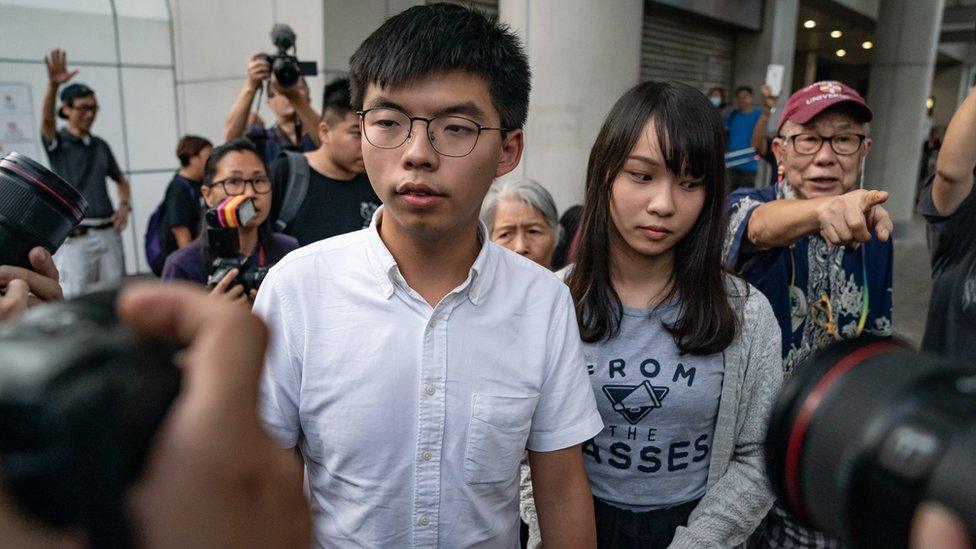
Joshua Wong has been campaigning since he was 13 and says people in Hong Kong have a right to protest
Arrests
One of the protestors arrested on Saturday was 23-year-old campaigner Joshua Wong.
Mr Wong, who has been protesting since he was a teenager, has been released on bail and told the BBC that: "Organising protests is the fundamental right of [the] Hong Kong people... People will still gather on [the] street and urge President Xi [Jinping] and Beijing [that] it's time to listen to people's voices."
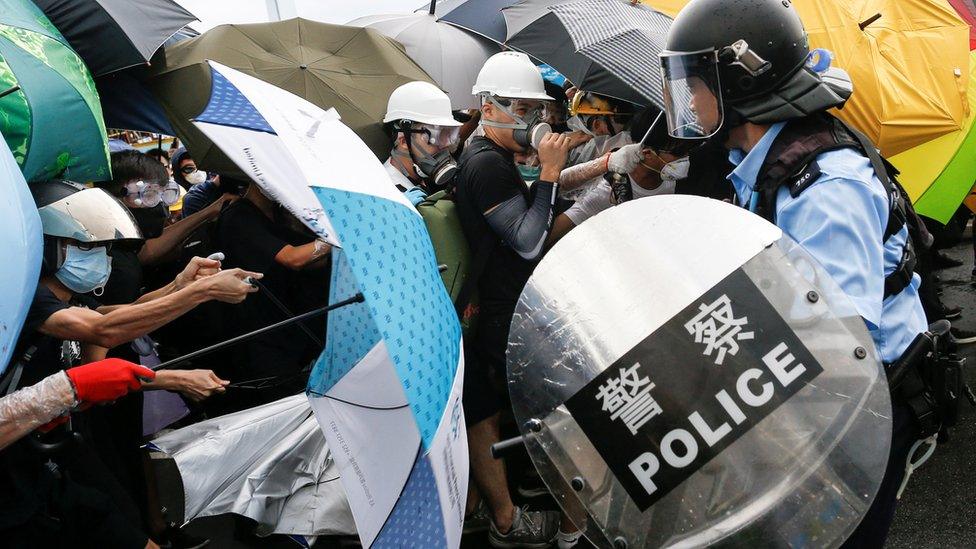
Protestors have been marching with umbrellas, masks and helmets
Why did the Hong Kong protests start?
The Hong Kong protests started in June and are against plans to send people to be tried in law courts in mainland China.
Critics say this will undermine Hong Kong's independence and put those who are against the Chinese government at risk.
Hong Kong is a former British colony, but since 1997 has been part of China.
However, unlike mainland China, Hong Kong has special freedoms and can operate under some of its own rules. Those freedoms are set to end in 2047, and many in Hong Kong do not want to become "another Chinese city".
Despite Hong Kong city leader Carrie Lam agreeing to delay the plans, demonstrations have continued with clashes between police and protestors becoming increasingly violent.
Activists are worried that China might get the military involved to stop the protests.
Beijing has repeatedly condemned the protesters and described their actions as "close to terrorism".
- Published17 June 2019
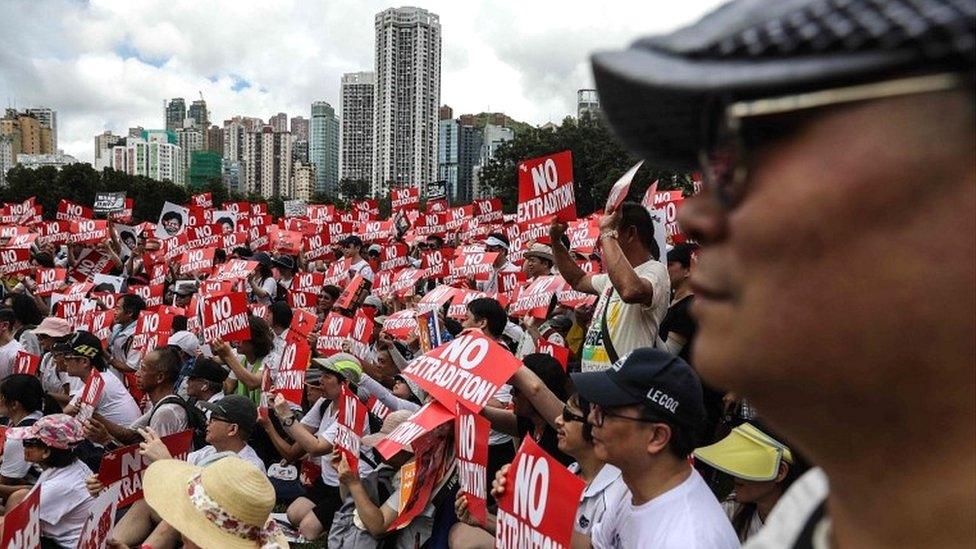
- Published28 November 2019
